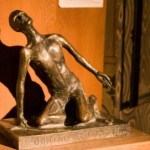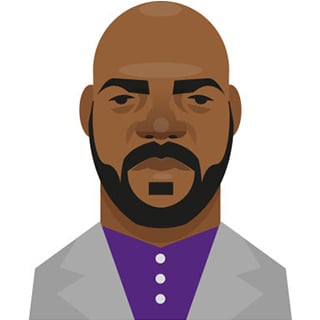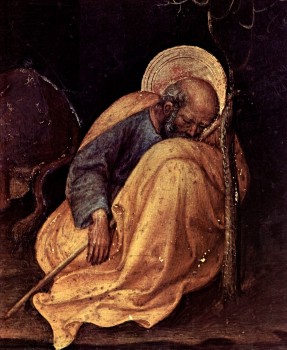 mind without soul may blast some universe
mind without soul may blast some universe
to might have been,
and stop ten thousand stars
but not one heartbeat of this child; nor shall
even prevail a million questionings
against the silence of his mother’s smile
-whose only secret all creation sings
-by e e cummings, from spiralling ecstatically this
Only Matthew speaks about Joseph, acknowledging his doubts about the marriage, about Mary’s unexpected pregnancy, how he struggles in his mind and is disturbed in his sleep. An angel comes into his dreams, urging him not to be afraid of Mary. The name, Jesus, a name known in all the ears on earth, is his gift to the Child. Matthew says, the angel whispered it to him.
It is easy to be smitten by the goodness in Joseph, this man who shoulders an enormous burden, questions in his heart and mind, yet scrambles along, terrified, deftly escaping to Egypt and two years of exile, keeping them all alive. And his burden includes two thousand years of sniggering schoolboy jokes, all taken on by him because he wants her, and God knows she needs him.
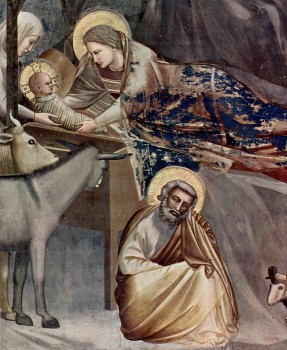 What has passed by our notice for so, so long, is the way in which Matthew shows us Joseph reversing the roles of husband and wife, from the harrumphingly dominant pattern of the wife as a servant to her husband’s needs, to this new arrangement, in which Joseph is the servant of his wife. Her needs and her child’s needs will dictate their lives, their locations. Through thick and thin he manages. And like a traditional wife, he fades from view in the doing of what must be done. We have no knowledge of what became of him, only that he disappears before Jesus, grown, is baptized in the Jordan.
What has passed by our notice for so, so long, is the way in which Matthew shows us Joseph reversing the roles of husband and wife, from the harrumphingly dominant pattern of the wife as a servant to her husband’s needs, to this new arrangement, in which Joseph is the servant of his wife. Her needs and her child’s needs will dictate their lives, their locations. Through thick and thin he manages. And like a traditional wife, he fades from view in the doing of what must be done. We have no knowledge of what became of him, only that he disappears before Jesus, grown, is baptized in the Jordan.
Though Mary is silent in this gospel, Matthew is not silent about women, five of whom he includes, against all precedent, in the genealogy of Jesus. And each of the foremothers whose names he has written could set tongues wagging with their bold defiance of sexual norms.
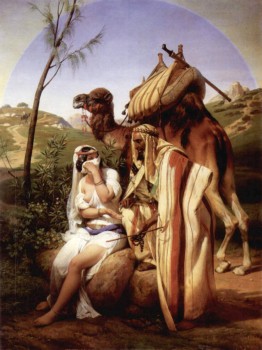 Rahab, known as the mother of Israel for saving Joshua in Canaan, ran a brothel there. Tamar, the daughter-in-law of the patriarch Judah, dressed herself as a prostitute and lured him into impregnating her so that she would be a childless widow no longer. Ruth, the daughter-in-law of Naomi, saved them both from starvation by seducing Boaz, Naomi’s wealthy older cousin. And Bathsheba, whom King David had soldiers bring to him to satisfy his lust, though she was married to one of his generals at the time, became the mother of Solomon, the greatest king.
Rahab, known as the mother of Israel for saving Joshua in Canaan, ran a brothel there. Tamar, the daughter-in-law of the patriarch Judah, dressed herself as a prostitute and lured him into impregnating her so that she would be a childless widow no longer. Ruth, the daughter-in-law of Naomi, saved them both from starvation by seducing Boaz, Naomi’s wealthy older cousin. And Bathsheba, whom King David had soldiers bring to him to satisfy his lust, though she was married to one of his generals at the time, became the mother of Solomon, the greatest king.
Mary, then, according to Matthew, is in startling company. The company of strong survivors, of free women. Mary is never identified as Joseph’s wife. In Christian culture, it is Joseph who is identified as Mary’s husband. And in Matthew’s gospel, it is from Joseph that Jesus becomes part of the lineage of David.
All this becomes prelude to Jesus’ tender mercies toward women who are not husband-identified. In Jesus’ ministry he reaches out to embrace a woman accused of adultery, various prostitutes including one who throws herself on his feet in the home of a rich man, a woman who has had five husbands, a woman possessed of demons (Magdalene), a bent-over woman, a woman who has been bleeding for years, and a woman who pours costly ointment on his feet and wipes them with her hair. As if to underscore this point, there is an absence of association between Jesus and traditional families, in whose company he is never shown to us. Many who came to him may have had this life, but it is in the irregularities of their lives that he meets them.
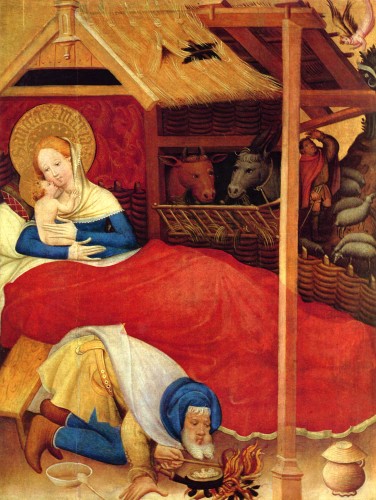 A Child is to be born, but the details of to whom the child is born are essential to the picture: to a woman who strikes fear into the hearts of the powerful by her independent spirit (she dares to answer all questions regarding paternity by saying the child within her is Holy); to a man who casts his lot with her, knowing this will be a very bumpy ride. And to the raggle-taggle folk of the world who have nothing to lose by stepping outside the conforming expectations of a world that has never been ready for the wildness of God.
A Child is to be born, but the details of to whom the child is born are essential to the picture: to a woman who strikes fear into the hearts of the powerful by her independent spirit (she dares to answer all questions regarding paternity by saying the child within her is Holy); to a man who casts his lot with her, knowing this will be a very bumpy ride. And to the raggle-taggle folk of the world who have nothing to lose by stepping outside the conforming expectations of a world that has never been ready for the wildness of God.
The family gathered at the manger are not each other’s friends and neighbors, and there are no blood relations among them at all. Mary and Joseph, barely married; the shepherd cowboys, who’ve never heard of these two before; three foreign dignitaries, not Jewish, not local, and not to be seen ever again; an assortment of patient beasts. Trust is not a given here, it is a choice. Heavenly peace belongs to the community of those who need it enough to seek it among strangers. And good men like Joseph are the strangers we long to find.
Sin fractures the Vision, not the Fact; for
The Exceptional is always usual
And the usual Exceptional.
To choose what is difficult all one’s days
As if it were easy, that is faith. Joseph, praise.
— from W. H. Auden’s For The Time Being: A Christmas Oratorio, in the section: The Temptation of St. Joseph
_______________________________________________
Illustrations
1. The Adoration of the Three Kings, a detail, Joseph at Rest, by Gentile, da Fabriano, 1423, altarpiece in the Uffizi Gallery, Florence Italy, Vanderbilt Divinity School Library, Art in the Christian Tradition.
2. The Nativity, by Giotto, detail, Joseph at Rest. Vanderbilt Divinity School Library, Art in the Christian Tradition.
3. Tamar and Judah, by Vernet, Emile-Jean-Horace, Wallace Collection, London. Vanderbilt Divinity School Library, Art in the Christian Tradition.
4. The Birth of Christ, by Conrad von Soest, detail, Joseph Starts the Fire. Vanderbilt Divinity School Library, Art in the Christian Tradition.




